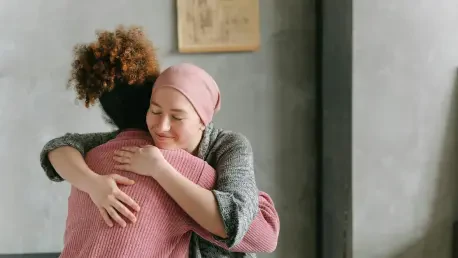Amidst advancing medical treatments for colorectal cancer, a less-discussed byproduct of the disease is its profound impact on women’s sexual health. This emerging issue is gaining attention as researchers endeavor to understand how female survivors cope with post-treatment sexual challenges.
Context and Significance
In the backdrop of a rising number of colorectal cancer cases among women, particularly younger age groups, the implications extend beyond addressing immediate physical health concerns. While much focus has been placed on survival rates and physical recovery, the nuanced struggle with sexual health following cancer treatment remains underrepresented. This oversight in healthcare discussions has prompted researchers to delve deeper into understanding and highlighting sexual health as a critical aspect of overall well-being and quality of life for survivors.
Detailed Summary of the Study
The research aimed to explore sexual health challenges faced by female colorectal cancer survivors, drawing from an extensive analysis of health data involving over 25,000 women diagnosed between 1985 and 2017. Focusing on significant post-treatment complications, the study employed population-level data to rigorously compare the experiences of colorectal cancer survivors with those of cancer-free women. This comprehensive approach enabled the researchers to identify specific sexual health issues disproportionately affecting cancer survivors.
Methodology Employed
The research utilized a robust comparative methodology, analyzing medical records of colorectal cancer survivors against those of the general female population. Such an approach allowed for identifying correlations and potential risk factors associated with treatment-related sexual health complications. Attention was given to variables such as age at diagnosis and type of treatment received, as these factors influenced the nature and severity of sexual health issues.
Key Findings and Evidence
Crucial findings revealed that female colorectal cancer survivors experience a significantly heightened risk of sexual health issues, most notably dyspareunia—severe pain during intercourse. The study found a marked 67% increased risk amongst survivors, with a staggering 90% rise for those diagnosed before the age of 40. Additionally, survivors presented an increased likelihood of developing pelvic inflammatory diseases, endometriosis, and premature ovarian failure, especially in younger women, stressing the need for tailored healthcare intervention.
Implications and Societal Influence
The data suggest that integrating sexual health into survivorship care is not only beneficial but necessary. With Dr. Mary De Vera and Dr. Lori Brotto leading the research, there is a clear call for improved education and training of healthcare providers to address these challenges adequately. The study advocates for open discussions within the medical community to foster comprehensive care strategies that prioritize the quality of life for cancer survivors.
Conclusions and Future Directions
Reflecting on these poignant findings, it’s evident that there is a need to rethink how sexual health is treated in the context of cancer recovery. The research highlighted critical areas for improvement, such as enhancing early intervention programs and increasing healthcare professionals’ awareness and competency concerning sexual health post-treatment. Moving forward, the field would greatly benefit from more targeted research exploring protective factors and preventive strategies to aid female colorectal cancer survivors. By prioritizing these initiatives, healthcare systems can align focus toward securing a holistic approach to post-cancer care. This progression could reshape survivorship narratives and improve life quality for this significant patient demographic.









